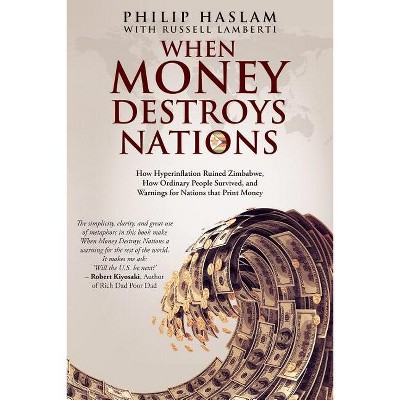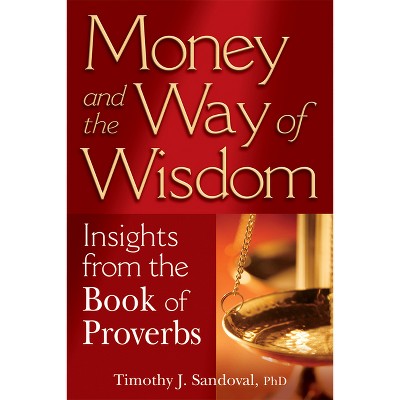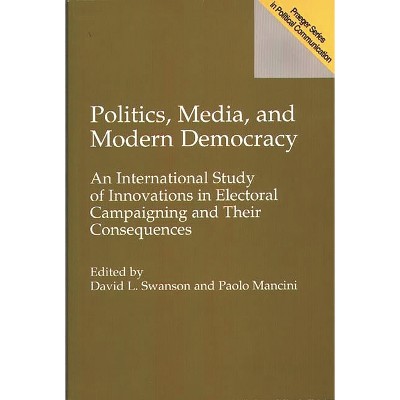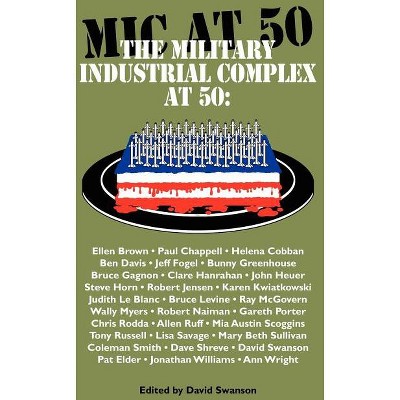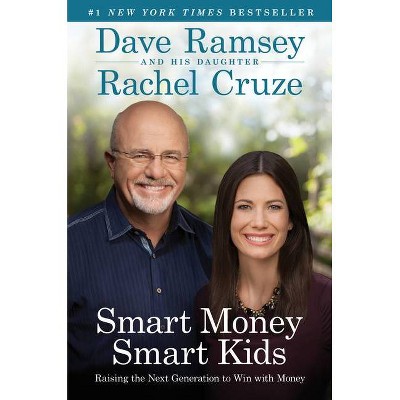Macro Accounting and Modern Money Supplies - by G a Swanson (Hardcover)

About this item
Highlights
- This ground-breaking book introduces macro accounting.
- About the Author: G. A. SWANSON is a Professor of Accounting at Tennessee Technological University.
- 208 Pages
- Business + Money Management, Inflation
Description
About the Book
This ground-breaking book introduces macro accounting. Most modern money emerges out of accounting documentation of private executory debt contracts within exchange processes. Money-information markers are basically negotiable (exchangeable for value) debt instruments. Macro accounting techniques provide sufficient detail to examine the complex coupling relations and the resulting constraints among exchanges of good, services, and money-information markers of various sorts.
The book begins with a discussion of the fundamental concepts of trades, exchanges, and the accounting basis of money. Accounting is then described as an aspect of empirical science--a means of observing concrete processes. Drawing on these basic ideas, Swanson extends organizational accounting to societies and supranational systems. The last four chapters simulate economic processes. The book should be read by serious students of economics, accounting, and political science as well as societal policy markers and the international banking community.
Book Synopsis
This ground-breaking book introduces macro accounting. Most modern money emerges out of accounting documentation of private executory debt contracts within exchange processes. Money-information markers are basically negotiable (exchangeable for value) debt instruments. Macro accounting techniques provide sufficient detail to examine the complex coupling relations and the resulting constraints among exchanges of good, services, and money-information markers of various sorts.
The book begins with a discussion of the fundamental concepts of trades, exchanges, and the accounting basis of money. Accounting is then described as an aspect of empirical science--a means of observing concrete processes. Drawing on these basic ideas, Swanson extends organizational accounting to societies and supranational systems. The last four chapters simulate economic processes. The book should be read by serious students of economics, accounting, and political science as well as societal policy markers and the international banking community.About the Author
G. A. SWANSON is a Professor of Accounting at Tennessee Technological University. His more than 50 articles have appeared in such journals as Systems Research, Behavioral Science, The Accounting Review, Internal Auditor Advances in Accounting, Accounting Historians Journal, and The Journal of Business Education. He is coauthor of Measurement and Interpretation in Accounting--A Living Systems Theory Approach (Quorum, 1989), Internal Auditing Theory--A Systems View (Quorum, 1991), and Management Observation and Communication Theory (Quorum, 1992).





